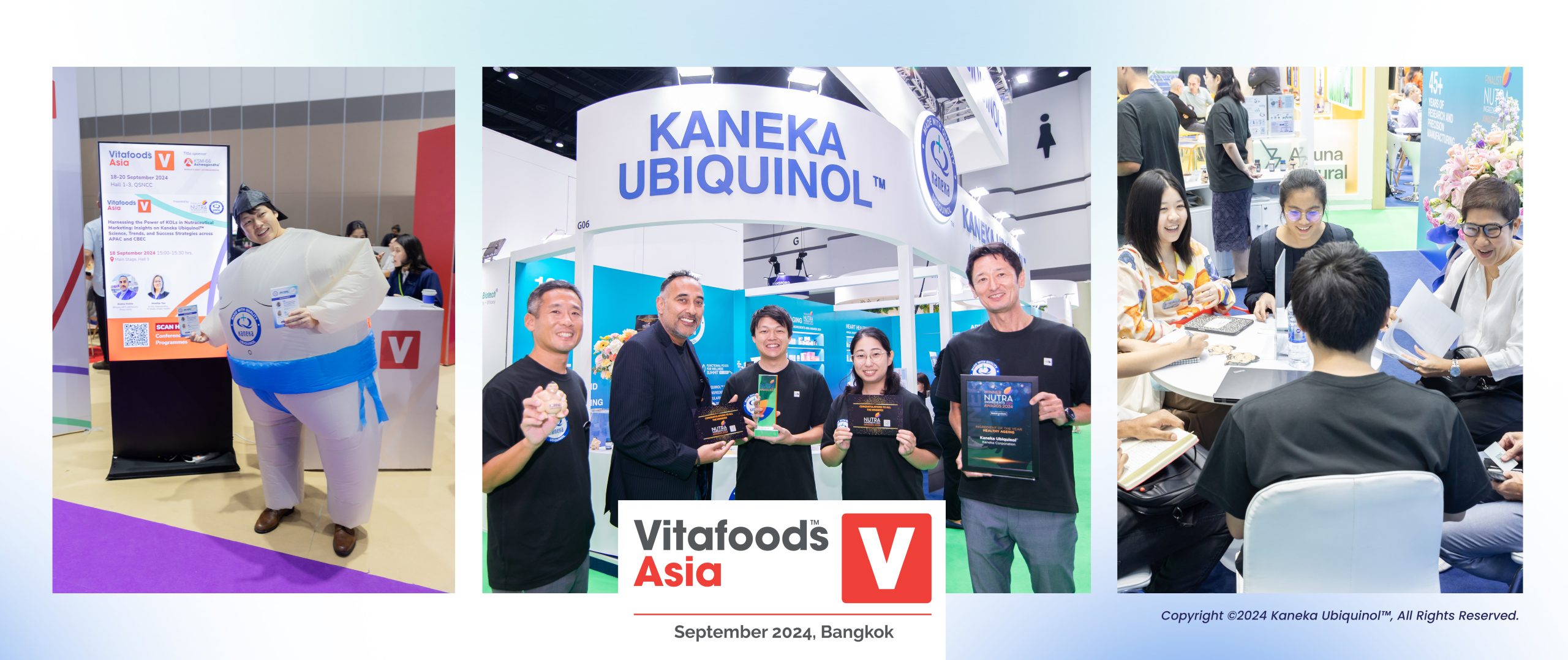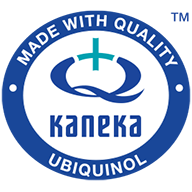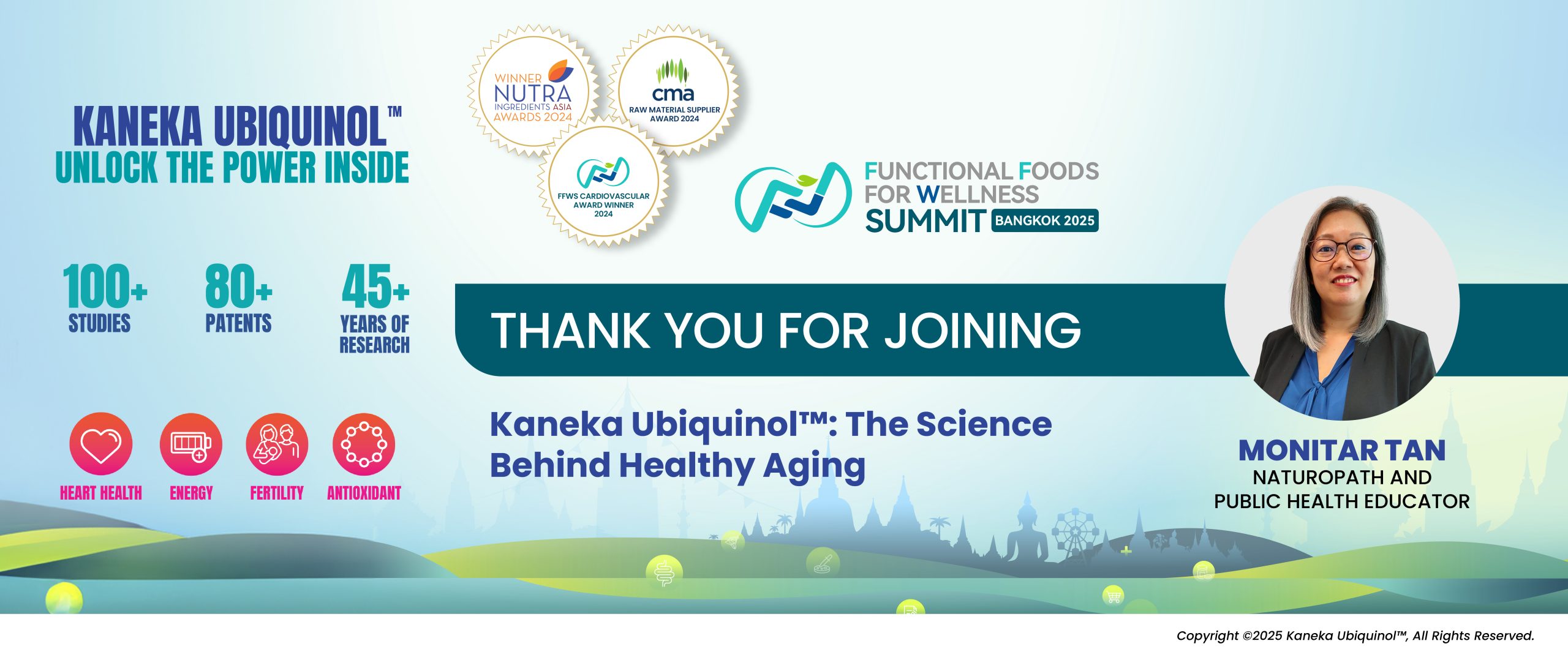5 Facts About Ubiquinol
Sep 2018Recent Article

You’ve likely heard of CoQ10 (Coenzyme Q10) and may have even heard about it’s more easily absorbable form, Ubiquinol, but do you know what role it plays in the body?
Here are five you things you should know about the powerful antioxidant that is Ubiquinol.
- Provides energy
Ubiquinol is the natural booster found in every cell of the human body that can help provide our cells with the energy to function. Our bodies need Ubiquinol to help convert carbohydrates and fats into energy which in turn helps promote cellular regeneration and reduces feelings of fatigue. As we age, however, our body’s ability to produce Ubiquinol declines.[1]
- A strong antioxidant
One of the main roles of antioxidants in the body is to help combat free radical activity and oxidative stress. Ubiquinol is a powerful antioxidant that can help to regulate the damaging effects of free radicals and oxidative stress, which is directly related to the ageing process.[2]
- Supports heart health
Research shows that Ubiquinol helps to maintain a healthy heart and cardiovascular system[3],[4] by providing the cellular energy needed to keep the heart pumping well. Energy demands of the heart are among the highest in the body, requiring significant amounts of cellular energy to function.
- May reduce the side effects of statins
The most common side effect of statins – anti-cholesterol medication – is muscle pain. Studies have shown that a deficiency of CoQ10 as a result of taking statins, may be related to muscle pain.[5],[6] Supplementing with CoQ10 may help to reduce mild-to-moderate statin-related muscular pain.[7]
- May help exercise recovery
As we age the level of Ubiquinol in our body decreases naturally, which makes it harder for us to recover from our workouts, and may leave us feeling higher levels of fatigue. Supplementing with Ubiquinol may lower the degree of inflammation after exertion and intense physical exercise, which may help with muscle recovery.[8]
[1]. Garrido-Maraver J, Cordero MD, Oropesa-Ávila M, et al. Coenzyme Q10 Therapy. Molecular Syndromology. 2014;5(3-4):187-197.
[2]. Lobo V, Patil A, Phatak A, Chandra N. Free radicals, antioxidants and functional foods: Impact on human health. Pharmacognosy Reviews. 2010;4(8):118-126.
[3]. Onur S, Niklowitz P, Jacobs G, et al. Ubiquinol reduces gamma glutamyltransferase as a marker of oxidative stress in humans. BMC Research Notes. 2014;7:427.
[4]. Fischer, A, et al. Coenzyme Q10 redox state predicts the concentration of c-reactive protein in a large caucasian cohort. Biofactors 2016; 42(3):268-76.
[5] Harper CR, Jacobson TA: The broad spectrum of statin myopathy: from myalgia to rhabdomyolysis. Curr Opin Lipidol, 2007; 18: 401–8
[6] Wyman M, Leonard M, Morledge T: Coenzyme Q10: a therapy for hypertension and statin-induced mylgia? Cleve Clin J Med, 2010; 77: 435–42
[7] Marcoff L, Thompson PD: The role of coenzyme Q10 in statin-associated myopathy: a systematic review. J Am Coll Cardiol, 2007; 49: 2231–37
[8] Sarmiento, A., Diaz-Castro, J., Pulido-Moran, M., Moreno-Fernandez, J., Kajarabille, N., Chirosa, I., Guisado, I. M., Javier Chirosa, L., Guisado, R. and Ochoa, J. J. (2016), Short-term ubiquinol supplementation reduces oxidative stress associated with strenuous exercise in healthy adults: A randomized trial. BioFactors, 42: 612–622.
You can share this by:
Keep up-to-date with Ubiquinol News
Ubiquinol Headlines
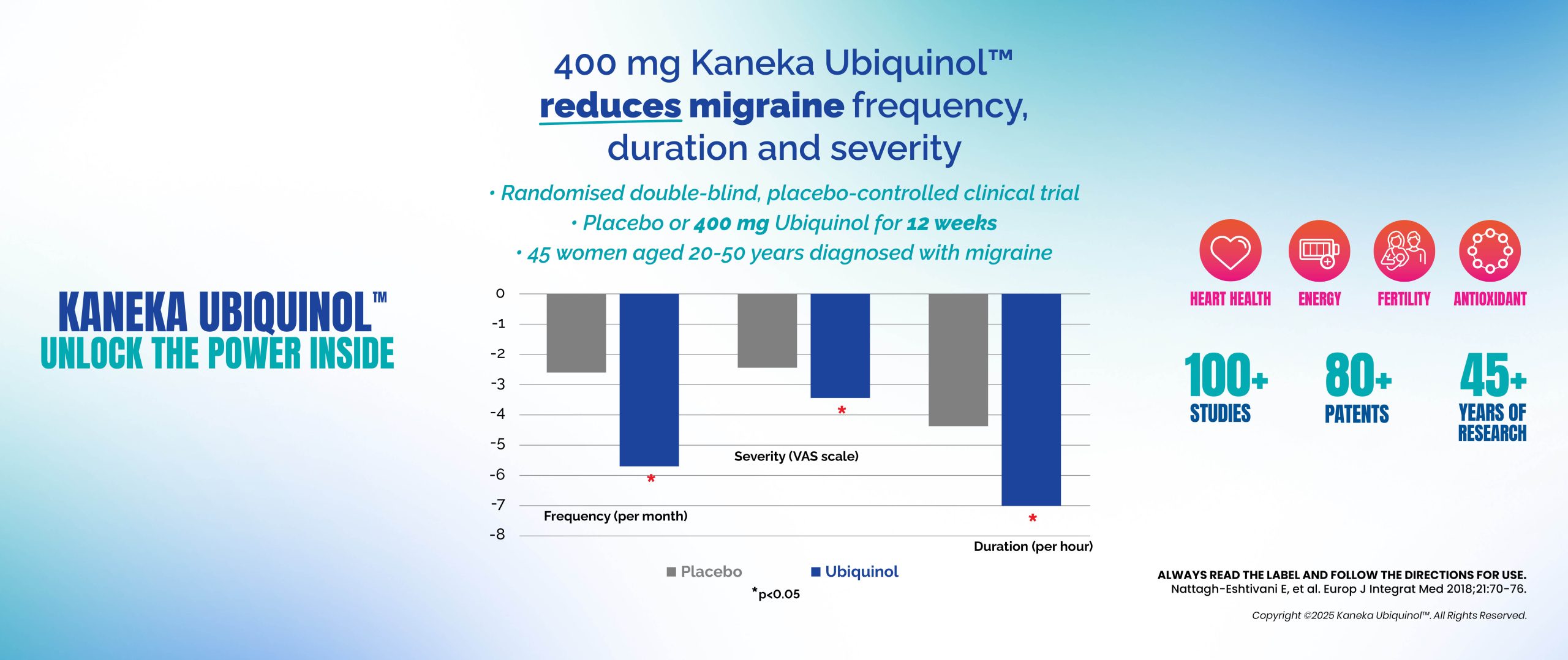
Ubiquinol: Supporting Migraine Relief Through Cellular Energy
Jan 2025Category: Antioxidants, complementary medicine, Energy, Fatigue, Health, Health Industry, healthy ageing, Kaneka, Mitochondrial health, Nutrition, Stress, Ubiquinol, Vitamins, wellnessRead More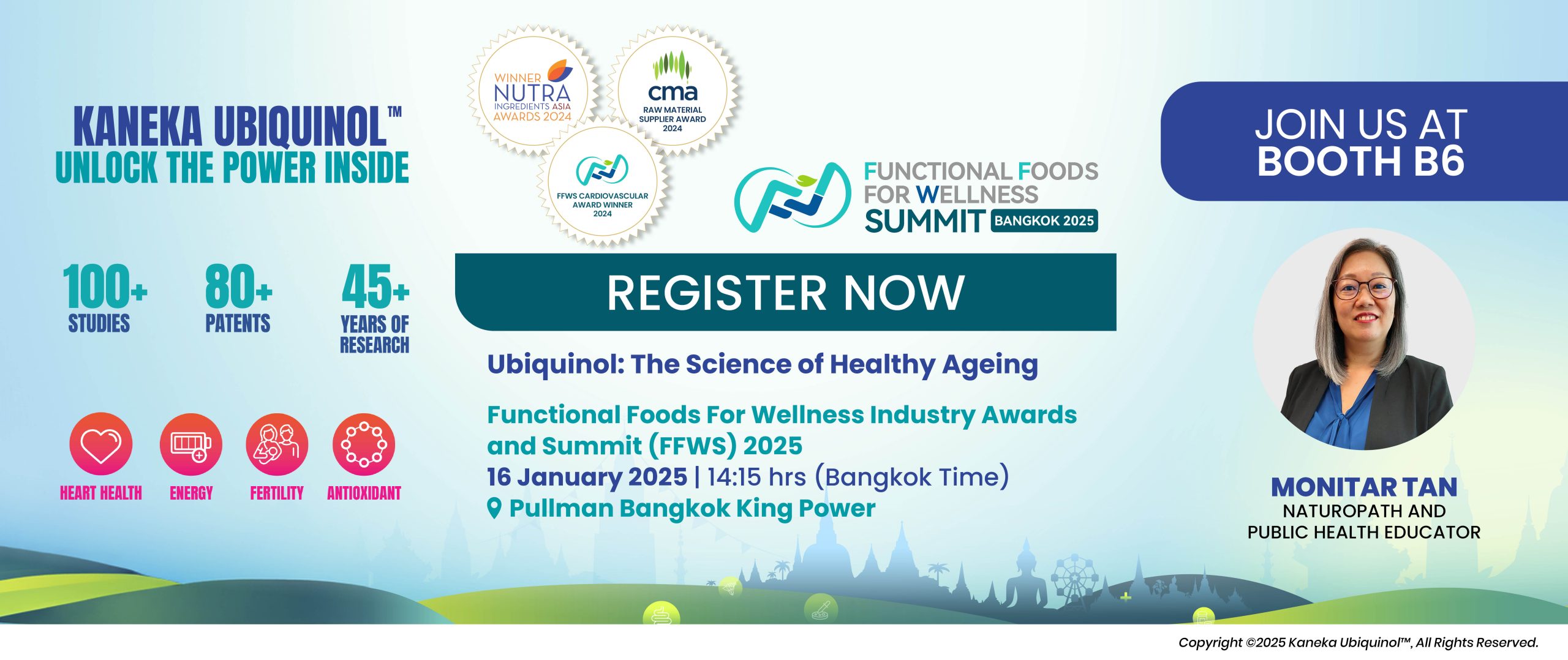
Kaneka Ubiquinol™ at Functional Foods for Wellness Industry Awards and Summit, #FFWS2025
Jan 2025Category: Ageing, Antioxidants, Awards, cardiovascular health, Conference, Conferences, Energy, Fatigue, FFWS2025, Health, Health Industry, healthy ageing, Kaneka, Menopause, Mitochondrial health, Nutrition, Ubiquinol, VitaminsRead More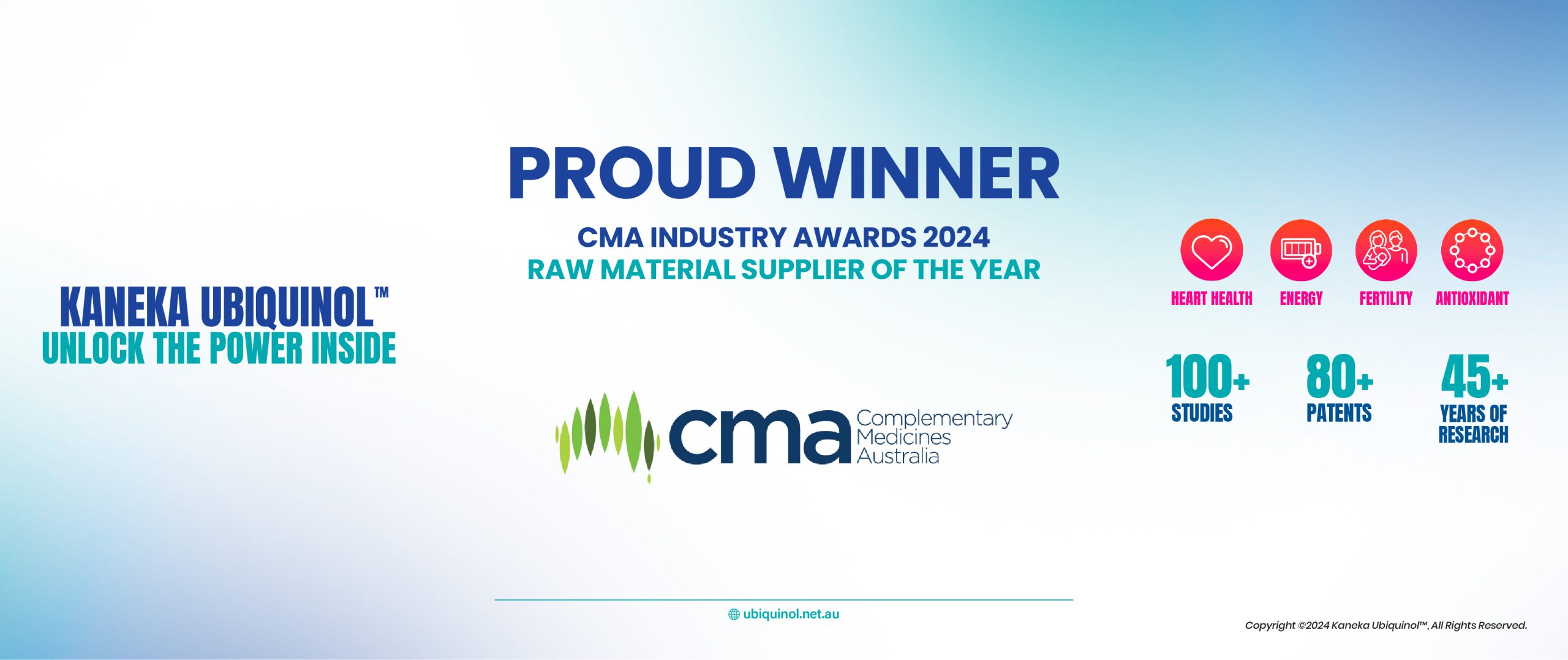
Kaneka Ubiquinol Wins Prestigious Complementary Medicines Raw Material Supplier of the Year Award 2024
Dec 2024Category: Ageing, Awards, cardiovascular health, complementary medicine, Conference, Conferences, Endurance, Energy, Fatigue, Fertility, Fitness, Health, Health Industry, healthy ageing, Heart, Immunity, In The News, Kaneka, Lungs, Memory, Mitochondrial health, Nutrition, Online, Stress, Ubiquinol, Vitamins, wellnessRead More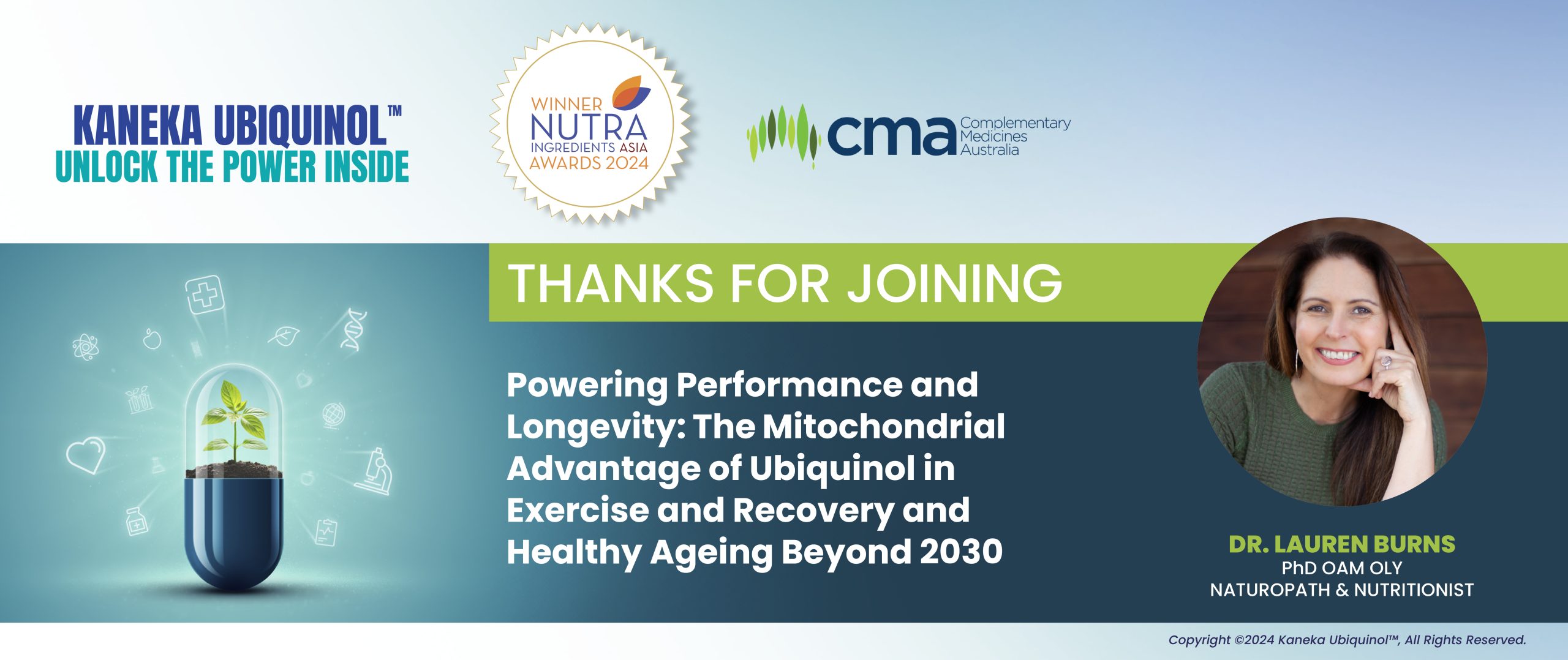
“Powering Performance and Longevity: Kaneka Ubiquinol™ at the CMA Annual Conference 2024”
Nov 2024Category: Ageing, Antioxidants, Awards, cardiovascular health, chronic fatigue syndrome, complementary medicine, Conference, Conferences, Endurance, Energy, Fatigue, Fertility, Fitness, Health, Health Industry, healthy ageing, Heart, In The News, Kaneka, Mitochondrial health, Online, Ubiquinol, VitaminsRead More
Natural Health Product Innovation Expo 2024
Nov 2024Category: Ageing, Antioxidants, cardiovascular health, Cholesterol, chronic fatigue syndrome, Conference, Conferences, Endurance, Energy, Fatigue, Fertility, Fitness, Health, Health Industry, healthy ageing, Heart, Kaneka, Menopause, Mitochondrial health, NHNZ, Nutrition, Stress, Ubiquinol, Vitamins, wellnessRead More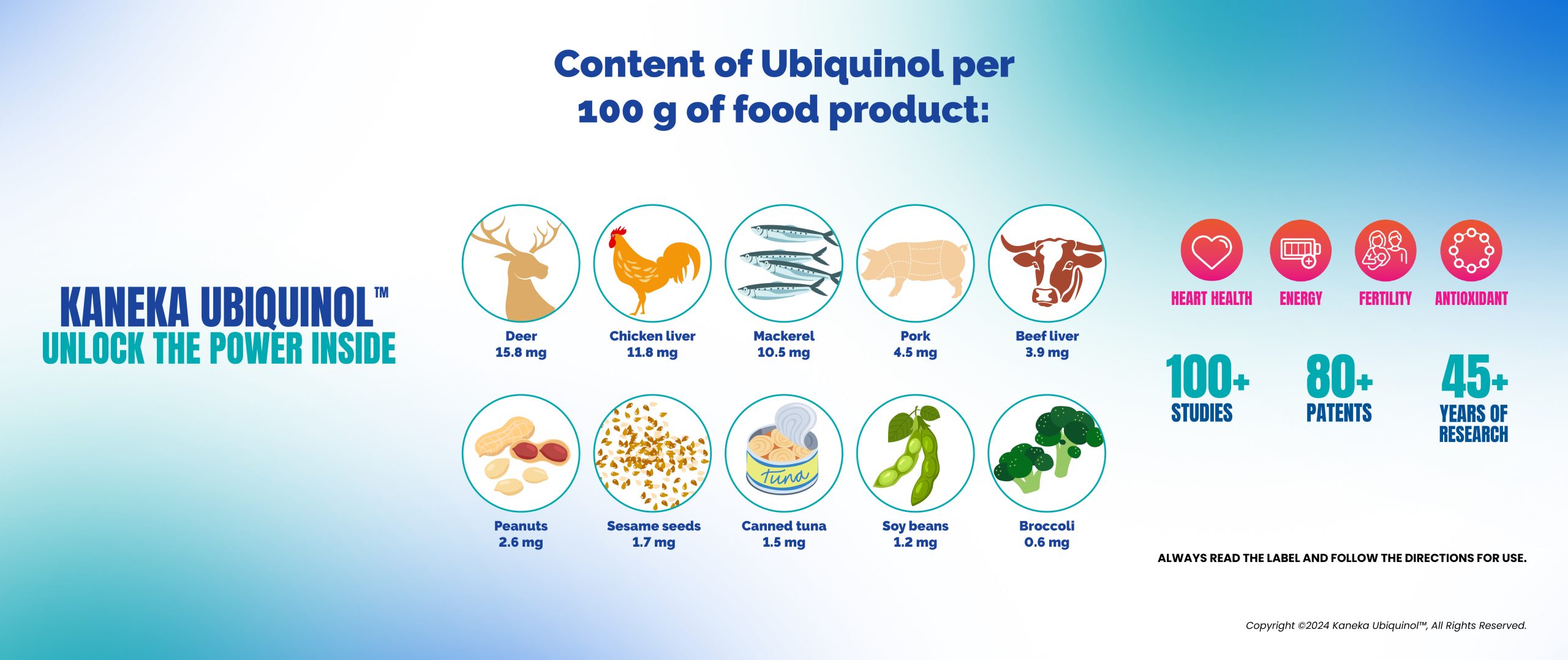
Ubiquinol: The Overlooked Nutrient for Vegans and Vegetarians
Oct 2024Category: Ageing, Antioxidants, Cholesterol, complementary medicine, Endurance, Energy, Fatigue, Fitness, Health, Health Industry, healthy ageing, Heart, Mitochondrial health, Nutrition, Stress, Ubiquinol, vitafoods, Vitamins, wellnessRead More
Investigating the Application of Ubiquinol in Mitochondrial Function
Oct 2024Category: Ageing, Antioxidants, cardiovascular health, Cholesterol, chronic fatigue syndrome, Endurance, Energy, Fatigue, Fertility, Fitness, Flu, Health, Health Industry, healthy ageing, Heart, Immunity, In The News, Kaneka, long covid, Lungs, Memory, Menopause, Mitochondrial health, myalgic encephalomyelitis, Nutrition, post pandemic, Stress, Ubiquinol, Vitamins, wellnessRead More